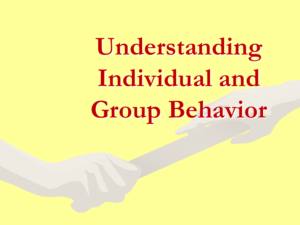Back to: Religion and National Value JSS2
Welcome to class!
In today’s class, we’re going to be talking about positive group behaviors. I trust you will enjoy the class!
Positive Group Behaviors
Positive group behaviors are actions and attitudes that contribute to the well-being and functioning of a group. In the context of religion and national values, these behaviors are essential for fostering harmony, understanding, and cooperation among diverse individuals.
Understanding Group Behaviors

– Group Behavior: How individuals act and interact when they are part of a group.
– Positive Behavior: Actions that are constructive, helpful, and promote group cohesion.
Core Positive Group Behaviors
- Respect: Treating others with dignity and consideration.
- Cooperation: Working together towards a common goal.
- Inclusivity: Ensuring everyone feels valued and included.
- Empathy: Understanding and sharing the feelings of others.
- Responsibility: Taking ownership of one’s actions and contributing to the group.
Examples in Religious Settings

– Interfaith Dialogues: Encouraging respectful conversations between different religious groups.
– Community Service: Religious groups coming together to help those in need, regardless of their faith.
– Youth Groups: Engaging in activities that promote teamwork and understanding among young people of different backgrounds.
Examples in National Values
– Civic Engagement: Participating in community projects and national events that build a sense of belonging and patriotism.
– Cultural Celebrations: Celebrating the diverse cultures and traditions that make up a nation, promoting unity in diversity.
– Environmental Stewardship: Groups advocating for and taking action to protect the environment, a shared national treasure.
The Role of Positive Group Behaviors in Society

– Building Trust: Positive behaviors create a foundation of trust, which is essential for any group to thrive.
– Promoting Peace: By respecting and valuing each other, groups can avoid conflicts and work towards peaceful coexistence.
– Enhancing Collaboration: When group members cooperate and take responsibility, they achieve more together.
Challenges to Positive Group Behaviors
– Peer Pressure: The influence of peers can sometimes lead to negative behaviors.
– Stereotypes and Prejudices: Misconceptions about others can hinder positive interactions.
– Communication Barriers: Misunderstandings can arise without clear and open communication.
Positive group behaviors are the cornerstone of a harmonious and productive society. They are especially important in a country’s religious and national values, as they help to bridge gaps between different groups and build a stronger, more united community.
We have come to the end of today’s class. I hope you enjoyed the class!
In the next class, we shall be discussing Continuation of Nigerian civilizations and cultures.
In case you require further assistance or have any questions, feel free to ask in the comment section below, and trust us to respond as soon as possible. Cheers!
Question Time:
- What are positive group behaviors, and why are they important in a community?
- Can you give an example of how respect is shown within a group setting?
- Describe a situation where cooperation helped achieve a group goal.
- Why is inclusivity important in groups, and how does it benefit group dynamics?
